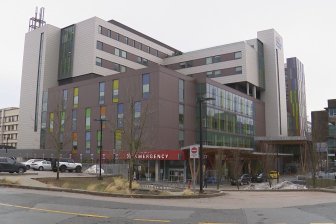The head of surgery at BC Children’s Hospital is “absolutely confident” his team will get elective surgeries back on track when the flow of children sick with respiratory illness tapers off.
Dr. Erik Skarsgard said the Vancouver hospital is still in a phase of “reduced elective surgical capacity,” shuffling staff around to deal with the triple threat of COVID-19, influenza and respiratory syncytial virus (RSV).
“When we have a restricted resource we have to prioritize it, so we’ve been really looking to those children that have surgeries that are elected but time-sensitive,” he explained, listing post-chemotherapy cancer surgeries and multi-team surgeries as examples.
“We are planning for the day, or the week that we can get back up to our full elective surgical capacity that will really allow us to dig into this backlog, which isn’t huge, but is significant for the families.”
BC Children’s Hospital has been slammed with sick children for months, its emergency department noting a 20-per-cent increase in volume since the fall. Estimated stay lengths have exceeded 12 hours at times, and staff have opened an overflow clinic to reduce pressure on the emergency department.
Earlier this month, a memo sent to some staff further advised some youngsters may have to share a single room “when medically appropriate,” as patient volume exceeded available space.
The decision to put some non-urgent surgeries on the backburner is not made lightly, “in isolation or by algorithm,” Skarsgard said, adding that some postponed surgeries have already been completed.
“We don’t postpone families then forget about them. We stay in touch with them and try to support them in other ways,” he told Global News. “I think everybody’s sort of pitching in.”

The Vancouver hospital is seeing about 165 visits daily — about 30 more patients than usual.
“Although we’re seeing children that may not be seriously ill, the number of children that are seriously ill is incrementally up amongst that number,” said Dr. Jana Davidson, the hospital’s chief medical officer.
She encouraged parents to be patient when bringing their little ones in and to consider the triage system used in health care.
“It’s not first come, first served. We see the children who are (sickest) first,” she explained. “We have an emergency operations command centre at the hospital really focused on this surge, and we make real-time decisions.”

Davidson and Skarsgard credited the “remarkable, absolutely amazing” work of staff. Many have taken on responsibilities outside their typical practice, they said, and are volunteering for extra shifts.
“Our orthopedic surgeons have decanted a lot of the minor trauma volume from the emergency department,” said Skarsgard.
“It’s this time of year that you really reflect on the importance of keeping our workforce healthy and safe and respected.”



Post a Comment